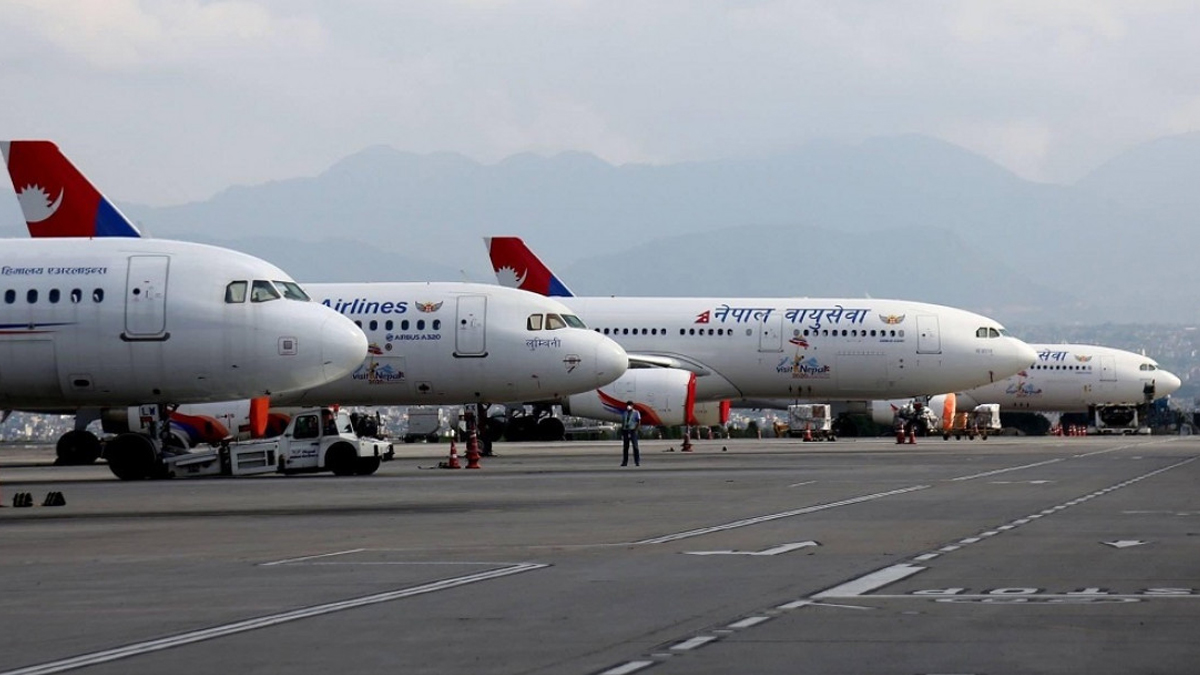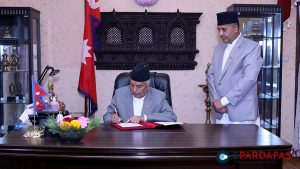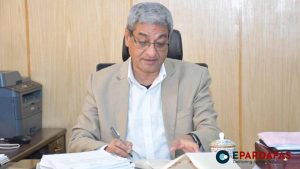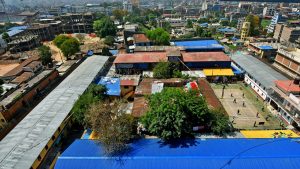
Financial Struggles Mount for Nepal Airlines Corporation with Grounded Chinese Aircraft Incurring Annual Costs of 48 Crores
Nepal Airlines Corporation (NAC) is grappling with a financial burden of 48 crores annually due to five grounded Chinese airplanes, resulting in an annual loss of 50 crores for the corporation. A study has revealed that despite being inactive for three and a half years, these parked airplanes demand substantial expenses, including insurance premiums, maintenance costs, parking fees, depreciation, and loan interest.
According to the ‘Corporation’s Structural and Managerial Study and Recommendation Committee Report-2080,’ led by former Governor Dipendra Bahadur Chhetri, the corporation is incurring unnecessary expenses of approximately 48 crores per year despite keeping the airplanes parked.
The report states that, including the insurance premium, maintenance, parking, depreciation, and interest, in addition to the pilot’s salary and training expenses, the annual cost for the grounded MA-60 is 283.1 million rupees, and for the Y-12E airplane, it is 19.78 million rupees.
The corporation asserts that these airplanes consume excessive fuel, have low passenger capacity, face delays in receiving parts from the Chinese side, incur high costs for spare parts, involve expensive training for pilots and engineers, and result in substantial insurance expenses.
The corporation had initially purchased six airplanes, including two 56-seater MA-60s and four 18-seater Y-12Es from China, aiming to operate domestically. However, the venture proved financially unsustainable, leading to the grounding of all five planes at the Tribhuvan International Airport since 16 Shrawan, 2077.
While one Y-12E faced an accident in Nepalgunj and was subsequently out of service, the annual operating loss for flying Chinese airplanes reached up to 50 million rupees, prompting the decision to ground them. The corporation incurred an operating loss of over two and a half billion from Bikram Samvat 2071 to 2077 due to the flying of these Chinese airplanes.
Despite the corporation’s attempts to lease or sell the grounded aircraft, public tenders yielded no takers for renting the airplanes. The corporation is now proceeding with the process of selling the aircraft, with an American appraisal company selected for the valuation. However, Ministry of Tourism sources allege that due to the management’s corrupt practices, the appraiser devalued the flyable aircraft as junk.
The study report indicates that the grounded MA-60 incurs an annual cost of Rs. 283.1 million, while Y-12E airplanes cost Rs. 195.9 million, covering expenses such as insurance, maintenance, parking, depreciation, and interest. The report highlights the reasons for grounding, including excessive fuel consumption, low passenger capacity, delays in part supply from China, high spare parts costs, expensive pilot and engineer training, and substantial insurance expenses.
The Corporation, having faced a loss of Rs 500 million 10 lakhs in the financial year Bikram Samvat 2079/080 for domestic flights, is also dealing with challenges in international flights. The operation of two widebody Airbus-330 aircraft has led to a loss of 3.28 billion five lakh rupees, while a narrowbody Airbus-320 airplane flight has contributed to a profit of 957.8 million rupees in the same period.
Despite the financial struggles, the corporation’s management is pushing for the purchase of three more TwinOtter aircraft, even as existing airplanes remain non-operational. The Ministry of Finance is yet to approve the corporation’s request for new purchases, given its current inability to fully utilize the existing fleet. The study committee points out that internal damage is attributed to non-operational airplanes, selective flight destinations, and compliance with higher authority instructions.













Comments